Dr. Ta Manh Hung, Deputy Director of the Department of Drug Administration, Ministry of Health - Photo: VGP/Thuy Ha
After the information that Thanh Hoa Provincial Police had dismantled a large-scale nationwide counterfeit drug production and trading ring, arresting 14 subjects for the crime of manufacturing and trading counterfeit disease prevention and treatment drugs, Dr. Ta Manh Hung, Deputy Director of the Department of Drug Administration, Ministry of Health, said that the Ministry had sent an urgent document to the Thanh Hoa Provincial Department of Health requesting information provision, close coordination with the police in the fight to clarify, strictly handle violators of the law and thoroughly recall counterfeit drugs that have been put on the market.
According to the Ministry of Health, initial information from the Thanh Hoa Provincial Department of Health and other relevant agencies shows that counterfeit drugs cannot enter the hospital system because they do not have the necessary documents or certificates to participate in bidding. The counterfeit drugs are mainly sold online and at retail channels.
According to the police, the subjects rented a warehouse in a deserted place, invested in production lines, machinery, and hired workers to live in a closed factory for production. Then, the subjects ordered raw materials such as pharmaceuticals, medicinal herbs, and herbs of unknown origin, mixed them, ground them into powder, used machines to form capsules, blister packs, and packaged the finished products to sell on the market through distribution channels to make a profit.
Among the 21 types of products seized by the police, there were 4 types of fake modern medicine (44 boxes of Tetracycline, 40 boxes of Clorocid, 49 boxes of Pharcoter, 52 boxes of Neo-Codion). The remaining 39,323 boxes included 17 types of fake products suspected to be oriental medicine, products with labels stating the intended use as medicine.
Counterfeit drug trafficking is criminally punished with a minimum of 2 years in prison and a maximum of death penalty.
Dr. Ta Manh Hung said that medicine is a special commodity that directly affects the health and life of patients, so it requires very strict management. The activities of production, business, trade and use of medicine must comply with the principles and standards of good practice stipulated in the Law on Pharmacy and related legal documents.
The act of producing and trading in counterfeit drugs is one of the prohibited acts stipulated in the Law on Pharmacy (Article 6) and is subject to criminal liability stipulated in Article 194 of the 2015 Penal Code, amended and supplemented in 2017. Accordingly, those who produce and trade in counterfeit drugs can be criminally prosecuted for a minimum of 2 years in prison and a maximum of the death penalty.
To ensure drug quality, the Ministry of Health has implemented a series of pre- and post-control activities throughout the entire process of drug production, trading and use, strengthened inspection and examination work, and issued many decisions to impose strict administrative penalties on organizations and individuals who violate the law.
The Ministry of Health and the Ministry of Public Security have also signed a coordination regulation in providing information, documents, and situations related to the production, business, import-export, distribution and circulation of drugs, including counterfeit and poor quality drugs.
The representative of the Ministry of Health affirmed that the fight against counterfeit drugs is always one of the key tasks not only of the health sector. Implementing Directive 17/CT-TTg dated June 19, 2018 of the Prime Minister, in recent years, the Ministry of Industry and Trade, the Ministry of Public Security, the Ministry of Health and other ministries and branches through the Steering Committee 389 have deployed a series of activities to prevent the production and trade of counterfeit drugs, detect and handle organizations and individuals violating the law.
The Ministry of Health also said that it has issued many documents directing the People's Committees of provinces, Departments of Health and units to strengthen inspection and supervision of drug quality; regularly coordinate with functional agencies to fight against counterfeit drugs and drugs of unknown origin.
The rate of counterfeit drugs in recent years has been below 0.1%. In 2023-2024, some localities such as Thanh Hoa, Ha Nam, and Hanoi reported the discovery of a number of fake batches of Tetracycline, Clorocid, Pharcoter, and Neo-Codion. The Ministry of Health promptly directed the Departments of Health to proactively coordinate with Steering Committee 389, the Police, and Market Management to focus on combating, detecting, and promptly handling them in accordance with legal regulations.
Recently, on January 9, 2025, the Department of Drug Administration and the Inspectorate of the Ministry of Health coordinated with the Department of Police Investigation of Economic Crimes and Corruption (C03), the Department of Internal Political Security (A03) of the Ministry of Public Security to hold a meeting to strengthen the prevention of counterfeit drugs and drugs of unknown origin with the Department of Health of some localities such as Thanh Hoa, Ha Tinh, Ha Nam...
The units agreed to continue to step up the fight against counterfeit drugs and drugs of unknown origin and strictly handle violations according to the law in the coming time. On that basis, the authorities have investigated, detected and strictly handled the above case.
Thuy Ha
Source: https://baochinhphu.vn/bo-y-te-thuoc-gia-chu-yeu-ban-tren-mang-102250417153044729.htm























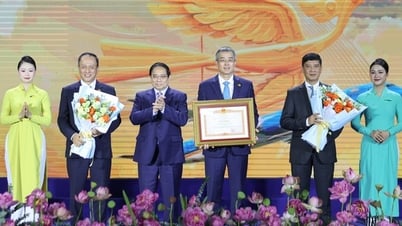
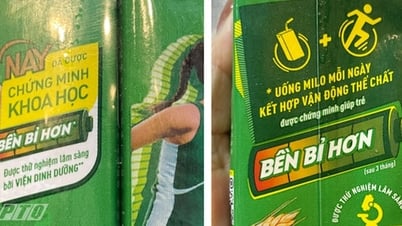




































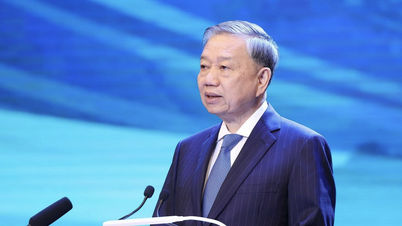









![[Photo series] Many Dong Nai products participate in the Southern Fruit Festival in 2025](https://vphoto.vietnam.vn/thumb/402x226/vietnam/resource/IMAGE/2025/6/1/dacb19003cee4155a6945db67914d9cf)

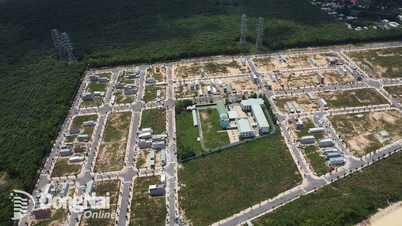
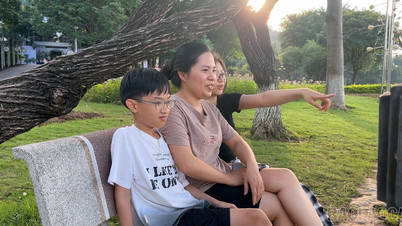



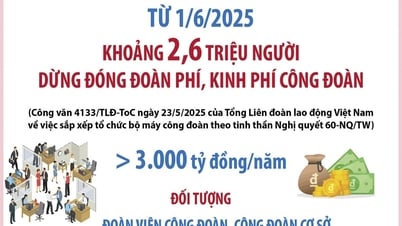

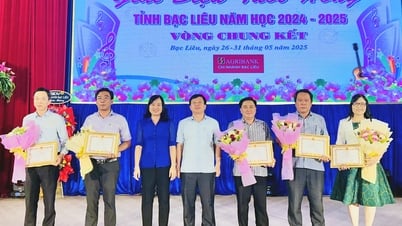







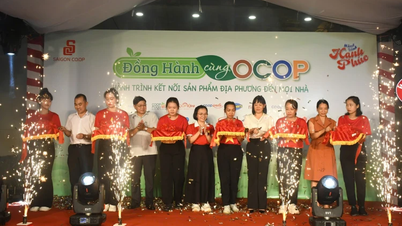







Comment (0)